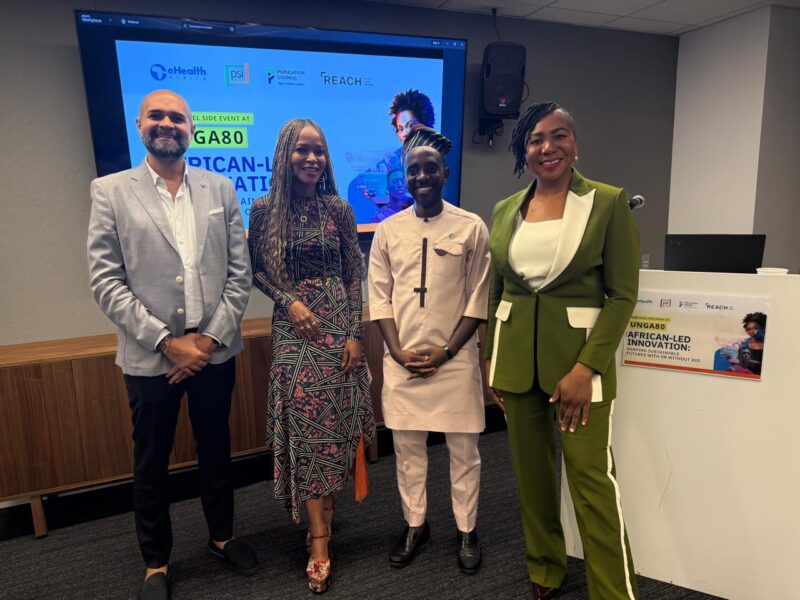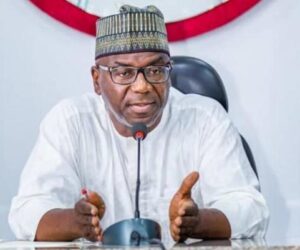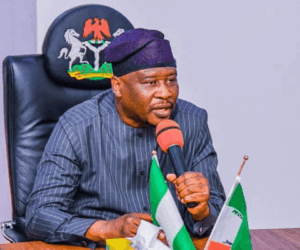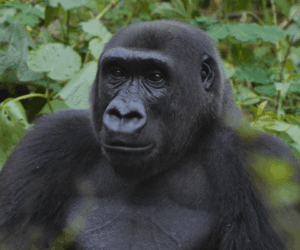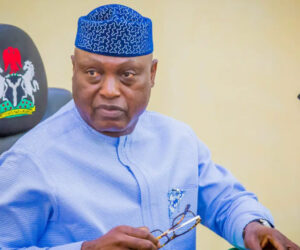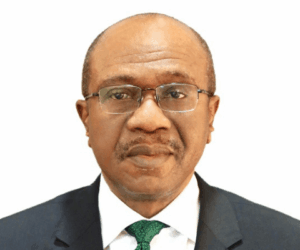African leaders seized the spotlight at this year’s United Nations General Assembly, making a bold statement about the continent’s capacity for self-driven innovation and development.
At a well-attended side event organised by eHealth Africa alongside Population Services International (PSI), the Population Council, and Reach Digital Health, prominent figures from across Africa demonstrated how the continent is forging ahead with homegrown solutions to global challenges.
The event, entitled “African-led Innovation: Shaping Sustainable Futures With or Without Aid,” directly challenged long-held assumptions about Africa’s dependence on external assistance, instead highlighting the continent’s ingenuity and resilience.
Opening the proceedings, Sierra Leone’s Minister of Information and Civic Education, the Honourable Chernor Bah, struck a defiant tone. “For decades, aid has shaped health, innovation, and development in Africa—but often without African ownership at the centre,” he told delegates. “In many ways, this created systems that were never truly ours. But Africans have always innovated. Innovation is part of who we are.”
Ola Brown, founder of HealthCap Africa, drew comparisons with successful global models to underscore Africa’s untapped potential. She pointed to how the internet emerged from a US Defence Department project and noted that 75 per cent of new pharmaceuticals trace their origins to government-funded research, before private capital scaled these innovations.
“In Africa, governments face capital constraints, so the model may look different,” Brown explained. “But when we invest in healthcare innovation in Africa, we don’t just create a healthier continent—we create a healthier world.”
Read Also: Nigeria gains global recognition for tax-ID
Michael Holscher, President of PSI Global, emphasised the critical importance of sustainability in innovation efforts. “One of the most critical players is the community itself—that woman in the marketplace, or that man in the village,” he said. “True sustainability rests in the ownership of stakeholders.”
The discussion also addressed concerns about inclusivity in development programmes. Judith Bruce from the Population Council cautioned against overlooking marginalised groups. “Too often the word ‘community’ is represented by a handful of older men. But where are the adolescent girls? Where are the young women?” she questioned.
Jean Philbert Nsengimana, Chief Digital Health Adviser at Africa CDC, urged health innovators to take inspiration from the continent’s fintech success stories. “M-PESA revolutionised financial inclusion. We need the same leap in health tech,” he said. “Africa has the solutions within. If aid comes, good. If not, we must—and can—move forward regardless.”
Debbie Rogers, Chief Executive of Reach Digital Health, cited South Africa’s MomConnect programme as an example of successful local innovation. The initiative has reached five million women, with 98 per cent recommending it to others. “Constraints drive creativity. In Africa, we don’t just work around them—we leapfrog because of them,” Rogers observed.
For eHealth Africa, the UNGA gathering represented more than symbolic participation—it was a declaration of confidence in Africa’s trajectory. Executive Director Atef Fawaz noted the palpable energy surrounding African innovation. “Africa will be among the top 20 emerging markets in the next two decades. This is the place to be,” he said.
Ota Akhigbe, Director of Partnerships and Programmes at eHealth Africa, reflected on the continent’s growing global influence. “Africa is no longer just invited to the table—Africa is leading conversations,” she said. “We are not only creating solutions at home but also bringing them here to influence global conversations.”
The evening concluded on a lighter note with a Jollof rice tasting competition, with Minister Bah playfully declaring Senegal the winner—a moment that captured Africa’s cultural pride alongside its serious development ambitions.
The message from New York was clear: Africa’s moment has arrived, and the continent is determined to shape its future on its own terms, regardless of external support.

